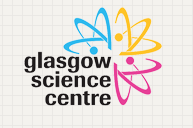By Dr Simon Hall, a Scots Language Coordinator at Education Scotland.

I sometime use the phrase ‘national treasure’ when I’m out and about talking to people about Scots language. There are a few reasons why I like this phrase. Firstly, Scots is indeed a ‘national’ language. It is spoken in all its rich varieties from Stranraer to Shetland, and pretty much everywhere in between. Folk in the Borders use it, and it’s used in our Scottish cities and across the Central Belt. It thrives in Angus, Aberdeenshire, Moray, Caithness and Orkney.
Scots is the ancient language of Lowland Scotland and the Northern Isles, once used in parliament, formerly spoken by kings, poets, courtiers and commoners. Along with English and Gaelic, it is one of the three indigenous languages of modern Scotland, and you’ll hear it today on our streets, and in our offices, factories, construction sites, shops, schools and hospitals.
Of course, Scots has a vast and rich vocabulary. Some of the academic Scots dictionaries have as many as 60,000 entries. Many of the most colourful, stand-out words are what linguists call ‘lexical items’, nouns or verbs like clanjamfry, glaur, bogle, bubblyjock, threip, gilravage, dordie-lochran, mirk or moose. But there is also a range of more common verbs and everyday prepositions – mak, tak, ken, doon, owre, ahint, afore – which are also unique to our part of the world.
Scots is so much more than just our favourite Scots word; it is the sum of the parts of the lexical items, the prepositions, and the accent. In common with Norwegian and other related Scandinavian languages, Scots uses the older ‘oo’ vowel sound in words like hoose, moose or ku where English adopted ‘ou’ or ‘ow’.
Is this stuff really treasure, though? I would have to say I think it is. Scots is a unique cultural phenomenon. Along with things like traditional dance or Scottish song, it belongs in the category of ‘intangible cultural heritage’, and, as such, it is fragile, and in some danger of being forgotten in our multi-media global village. If Scots were a wild plant or a wild creature, we would be doing everything we could to preserve it. Towns and communities using guid Scots would be designated as Sites of Special Linguistic Interest.
Scots is becoming increasingly present in social media. Shetlanders use it on Facebook every day. It is popular in text. Scots Language Dictionaries has just launched a superb new Scots dictionary app. BBC Radio Orkney broadcasts in excellent Scots every morning. Translation of classic bairns’ books into Scots is at an all-time high level.
So it’s with these and other positives in mind that the team of Scots Language coordinators at Education Scotland are working to celebrate and promote excellent Scots Language education in our schools.
Many primary schools across a range of Local Authorities are looking at developing their ability to teach Scots within the areas of Literacy and English, while a number of forward-thinking secondary schools are pioneering the new Scottish Qualifications Authority Award in Scots Language. Another exciting development is Education Scotland’s ‘Scots Language Ambassadors’ initiative, where a team of Scots speakers from all walks of life are pairing up with schools to celebrate and promote Scots. Chefs, shopkeepers, authors, musicians, broadcasters, teachers and senior educationalists have all signed up to form friendly partnerships with schools: their ultimate aim is to promote this national treasure among the next generation of learners.
This article first appeared in the Edinburgh Evening News on Monday 8 December 2014.
 Young Engineers and Science Clubs Scotland encourage you to enter the Junior Saltire Competition 2015 Marine Energy Challenge.
Young Engineers and Science Clubs Scotland encourage you to enter the Junior Saltire Competition 2015 Marine Energy Challenge.








































